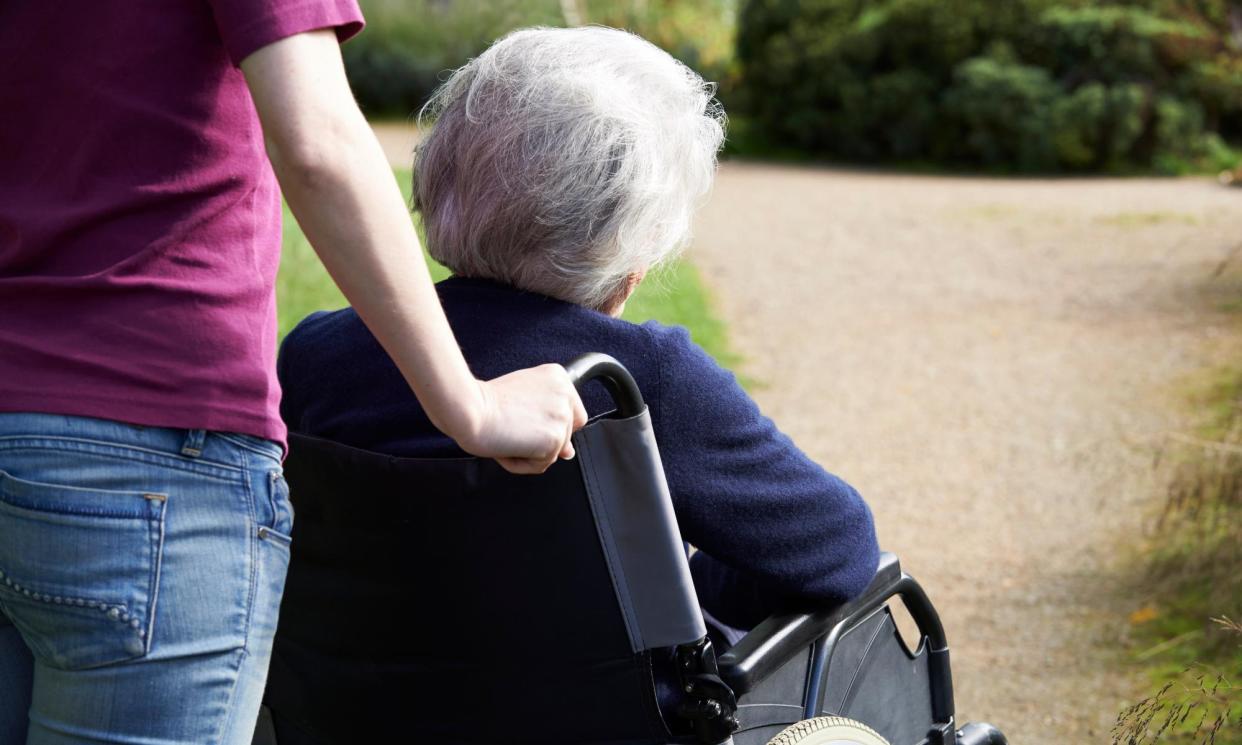Carer’s allowance scandal is not going away – but will DWP reform happen?

It has been a month since the Guardian revealed the shocking scale of the carer’s allowance overpayments scandal, and the misery and despair it has inflicted on tens of thousands of unpaid carers. The issue is not going away – but what happens next?
The story has since spread: from the House of Commons to the sofas of daytime TV and the bulletins of BBC news, accounts of the trials and tribulations of carers who do part-time work on top of caring duties have triggered disbelief and outrage and generated calls for reform across the political spectrum.
After the Post Office Horizon scandal, the public has a ready frame for understanding of the plight of a group of individuals chased down by a distant bureaucracy – and disproportionately penalised – over rules breaches that might never have happened had IT systems operated as intended in the first place.
There is now political pressure on ministers to find a way of immediately stopping the stream of carers falling foul of a system described by MPs as “setting carers up for a fall”. That one in five unpaid carers working part-time and in receipt of carer’s allowance last year ran up earnings-related overpayments is a clear sign that things are not working.
Related: ‘DWP are the real criminals’: carer in tatters after ‘brutal’ fraud prosecution
Senior politicians, including both Labour and Tory former work and pensions secretaries, have called for the Department for Work and Pensions to pause its pursuit of repayments until it has reviewed its own culpability in allowing overpayments – many running into thousands of pounds – to accrue unchecked.
Others have called for an amnesty, in effect writing off carer debts where it can be shown that the DWP was at least partly at fault for the overpayment arising. Some have asked benefits officials to at least write or text claimants when a potential earnings breach alert is raised on their account, so carers themselves can act.
Five years ago the DWP said its strategy was to “stop overpayments occurring in the first place”. Yet there are 156,000 carers repaying earnings overpayments, with more than 11,600 on the hook for sums greater than £5,000. There were 34,500 earnings overpayments last year alone. New overpayments have never (apart from the first year of the pandemic) fallen below 30,000 a year for the past half decade.
The DWP is under pressure to properly staff the unit that investigates potential overpayment alerts. For years it has resourced the unit at a level that enables it to check just half the total number of earnings alerts it receives. While the law states the onus is on benefit recipients to ensure they do not breach earnings rules, critics argue that cannot excuse the DWP’s failure to play its part fully in preventing overpayments.
There are also calls for longer-term reform of carer’s allowance to iron out the unfairness embedded in the way it is designed, thus making it fit for the modern world of work and care. The cliff-edge earnings penalty is absurd and punitive, and a disincentive for unpaid carers to work part-time. Campaigners have called the £81.90 carer’s allowance payment meagre, and said that the earnings limit must be raised beyond £151 a week.
The scandal – carers not just picking up the bill for DWP failures to stop overpayments but in some cases landed with a criminal record – has been hiding in plain sight for decades. A whistleblower brought it briefly into the spotlight five years ago, but changes in the political weather soon after then meant carer’s allowance reverted to its historical default position as a welfare policy afterthought. Until now.


